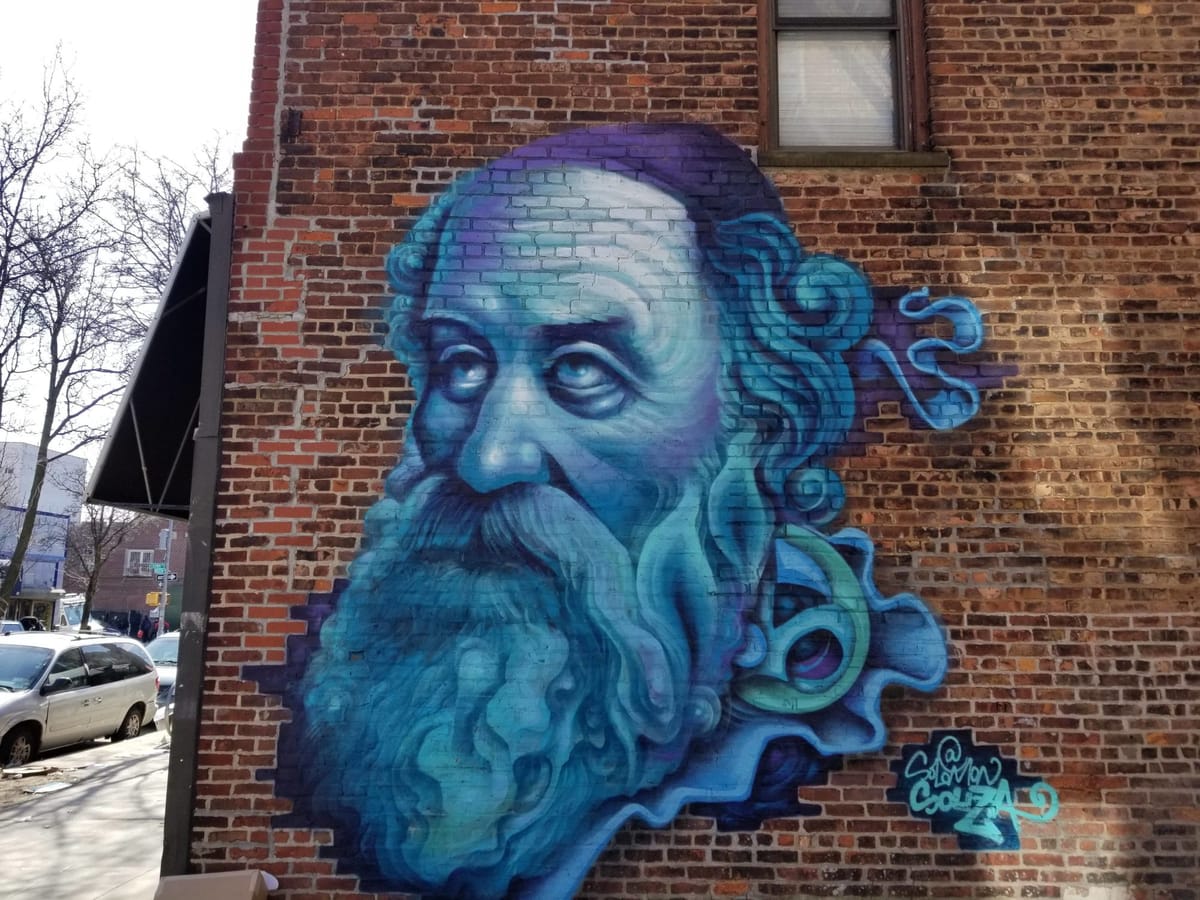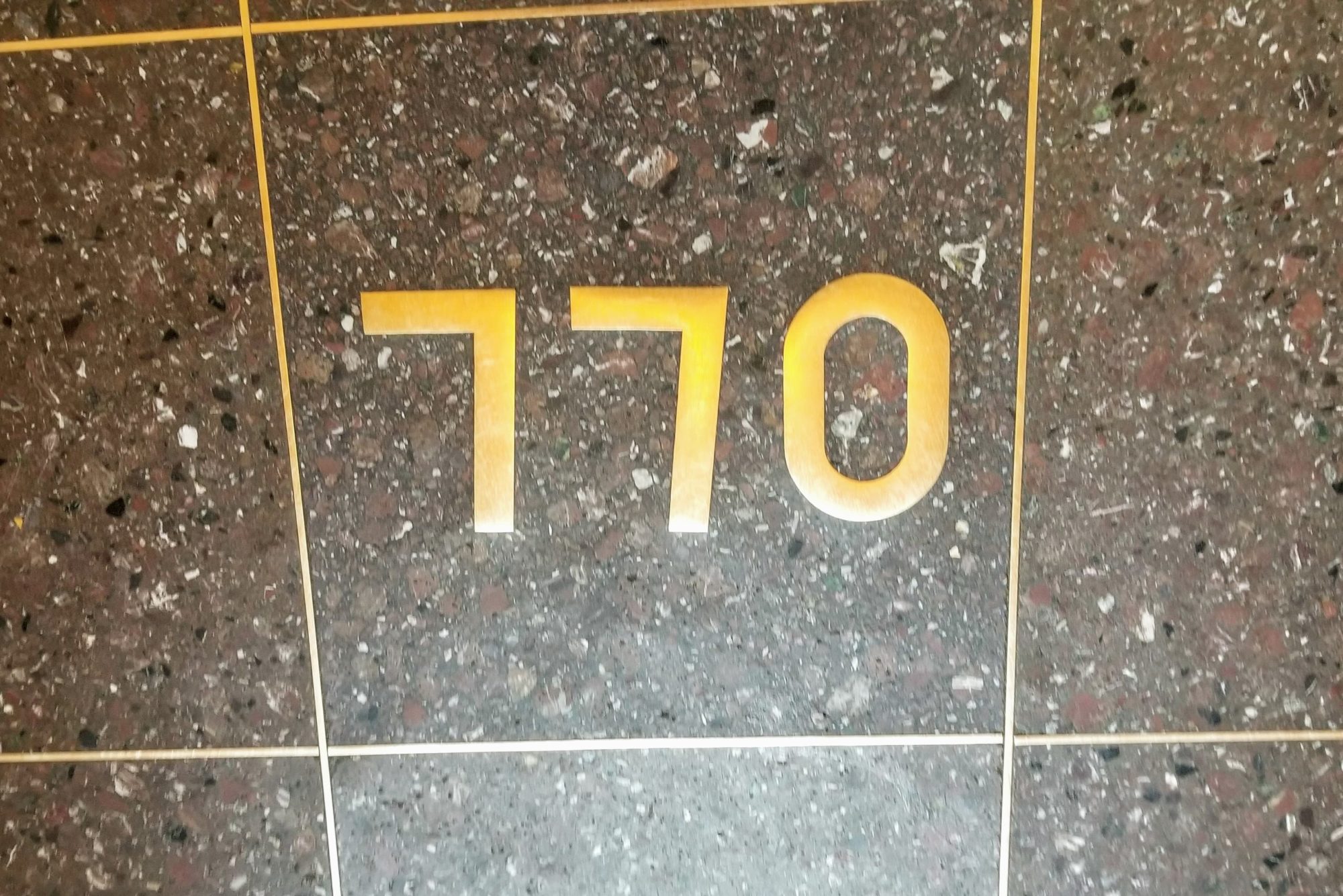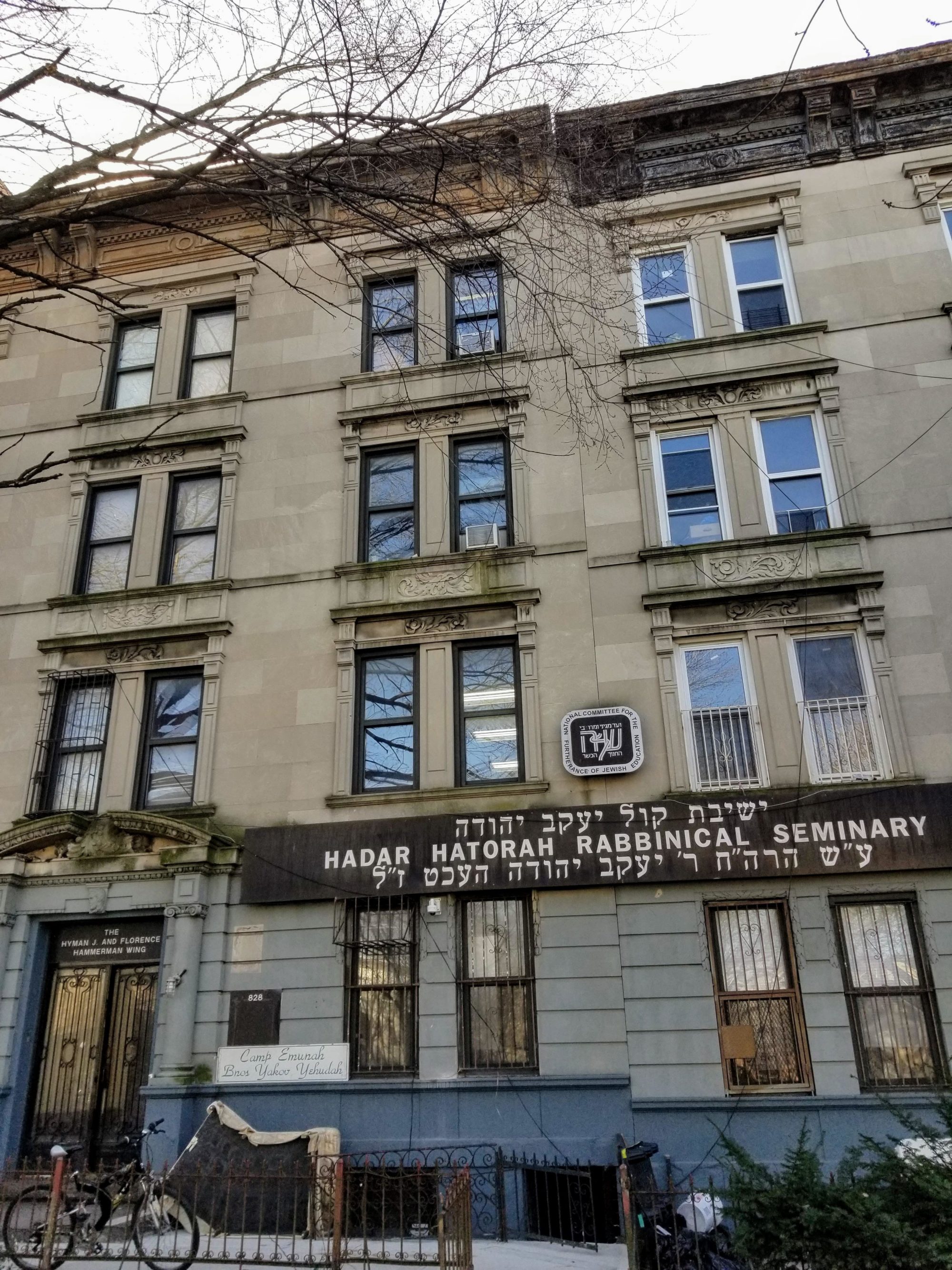Talking to Neighbors: Anti-Semitism in Crown Heights

CROWN HEIGHTS — Last year saw another spike in reported hate crimes, much of it perpetrated against our Jewish neighbors. So we went out to talk to our neighbors, both Jewish and not, about anti-Semitism, hate, what’s being done and could be done.
According to NYPD reports, by mid-2019, anti-Semetic hate crimes skyrocketed in the city, making up 60% of all hate crimes. The 94th and 71st precincts, Williamsburg and Crown Heights, respectively, have seen a disproportionate amount of anti-Semitic hate crimes.
The residents of Crown Heights are predominately Jewish and Black, in South Williamsburg, there are many Latinx and Jewish families. In light of recent hate crimes, the mayor announced the NYPD will increase their presence in these neighborhoods.
Here’s Crown Heights.
Dovid Raigorodsky, a young Hasidic (Lubavitch) man from Crown Heights:
I don’t think it’s [anti-semitic hate] a new thing. But it’s definitely increased recently – especially in the past year – it’s definitely been increasing a lot. I’ve been assaulted, but I don’t believe it was an anti-Semitic attack. It was a guy on drugs who just randomly walked up to me and punched me in the face.
Rick and Brett Johnson, African American. Rick moved to Crown Heights recently, and Brett often comes from Atlanta to live with his father for short periods of time.
Is there enough being done about anti-Semitic crimes right now in Crown Heights?
Brett: Honestly, I’m like an outsider – I’m visiting dad, we have two totally different perspectives. I come and I see – you’re kind of thrown into it. I see the same things that are being done in other cities – Maryland and Atlanta. I don’t think it’s enough. It’s a very specific community, this is a very specific crime. I’ve seen a lot of different crimes across the east coast. They’re more vague. Less specific. You see the same type of action done for this scenario. All I see is the same level of action for two totally different situations.
Question is, do we need more incident to figure out what’s going on. I would say the answer is no. The job of the city is not to wait for incident to solve and create solution. But it seems like that’s what people in general are doing.
Rick: I just moved in here. I don’t think [that there’s enough being done]. It seems like it just started really.
A young Hasidic man who did not provide his name In response to whether he feels anti-Semitic crimes have gotten worse lately:
“I don’t feel any difference [from] before.”

Hana – an older Hasidic woman from Crown Heights
Have you personally been a victim of anti-Semitism?
Hana: Thank god, I haven’t been.
Have you ever felt unsafe because of being identifiably Jewish?
Hana: No. You know, we’re proud to be Jewish, and we will stick [up] for ourselves, and that’s what it is. It’s very sad. I went through 1991, the riots. Somehow – my daughter was a little girl, now she’s married, she has her own kids, she lives in Florida, and she said “Ma, I saw terrorism, the guardian angel, and it reminds me what we went through in 1991. She said, “it’s so terrifying.”
Is there’s enough being done about anti-semitic crimes?
Hana: No.
What do you think should be done?
Hana: I have no idea. But it has to be done – it’s disgusting. What is the difference — what you are? Do we do anything to anybody? The Jews mind their own business.
Brocha Friedman – older Hasidic woman from Crown Heights.
Is there’s enough being done about anti-semitic crimes?
Brocha: I think that they [authorities] mean well, but sometimes it’s a little bit harder to put the money where your mouth it. Our goal – we would love to see like a Messianic era where the lion and the lamb will sit together. So people of all nations and races and communities – we should be able to get along together. We’re humans, right? That should be our focus and our goal. I think that if all good people will join together with this in mind and bring it forward.
Let’s do more good. More random acts of kindness and goodness. Help somebody else – there’s an old lady in your building. You’re going to the store, see if she needs something.
I think that should become contagious, instead of the opposite. Why should we let bad speak so loud, and scare us?
In response to whether she’s personally felt like a victim of anti-Semitic crimes in this neighborhood.
Brocha: Thank God, me personally not, but I know people [who have].
Have you ever felt unsafe because of being visibly Jewish?
B: Well, you always do run that risk. Personally, I feel I’m a proud Jew. [I don’t want us to have to] start hiding our Jewishness]. That’s not what America is about. America’s the land of the free! So, if you’re talking about our politicians and our police, they should look to our constitution and stand up for it! Not for what’s politically correct.
There seem to be new laws taking place, new soft laws on crime. What’s to stop people from doing crime? So I think they need to keep those things in check, and if those things are in check, there’s going to be less of everything else bad going on. A land has to have normal laws that do defend their citizens – the innocent, tax-paying, good people that go to work every day and they shouldn’t be at risk because the government wants to make lax laws.
Molly Goldstein, Hasidic, lives in Crown Heights (originally from Fort Worth, Texas).
Has there been a rise in hate crimes?
Molly: I think it’s been at boiling point for a while. [Jews] are calm, we are such nice people, but I think that makes us open to [hate crimes].
Have you personally been a victim of anti-Semitism?
Molly: Sometimes if I have to go very far, like to Home Depot or something, I actually wear pants with my coat over. I don’t look Jewish. I think right now with all that’s going on – Monsey really shook me up. I’ve kind of been extra aware.

Are authorities doing enough to address antisemitism?
Molly: Oh my gracious, yes. And I worry like a mother. I don’t have kids, but these Hasidic boys will go back and forth because 770 [Chabad-Lubavitch World Headquarters] is open 24 hours and they’re studying. It’s just like a college campus. I worry about them. The authorities – both the Shomrim and the NYPD, they were awesome just like they were downtown. I felt safe. I really appreciate the manpower they’ve given to just this one community.
[The Shomrim] are really responsive. It’s like a civilian police, instead of 911. It’s in pretty much every large Jewish community. They’re registered with the police – they work side-by-side with the police, because if it needs to get escalated – they’ve already done all the legwork, it saves time for the police.
Would you feel less safe if there weren’t civilian police like the Shomrim?
Molly: Oh my gracious, yes. I like to have a presence.
Levi Keselman – young Hasidic man from London who lives in Crown Heights.
Do you feel like there’s been an increase in crimes against the Jewish community as of late?
Levi: It seems that way, yes.
Have you personally been a victim of anti-Semitic crime?
Levi: Thank god, no.
Have you ever felt unsafe because of being Jewish?
Levi: With the apparent rise of it, I’ve been more on the lookout. I generally like to practice awareness, keep my eyes open. Usually, people pick up people who are unprepared.
Are the authorities are doing enough to prevent or react to these types of crimes?
Levi: I think the police are doing their jobs. I think it’s the higher-ups – I don’t think they’re acknowledging it.
What, if anything else, could be done to reduce antisemitism?
Levi: I think it needs to be acknowledged that antisemitism is not just coming from white supremacists, which the media loves, they always go with that. Antisemitism isn’t unique to one group, it can come from anywhere, and it has to be addressed. I will say many of these people are released, meaning that their crimes are not being taken seriously. Obviously non-violent criminals have to be given better consideration, but [having] violent criminals back on the street is not good, usually.

Young (non-Jewish) Danish man living in Crown Heights – wishes to go anonymous
Have you witnessed any anti-Semitic crimes?
K: I have not, but I have seen some tensions around here, like when people are clashing, it seems a bit more tense now. I mean, of course, but coming from a country like Denmark where we don’t have much police, with the recent happenings we see a lot more police here.
Do you mean clashes between the Jewish community and people who are not from the Jewish community?
K: It seems like [Jewish people are] getting more secluded in some ways – they’re a bit more for themselves it seems like, these days. If they feel like they have a mark on them, of course [they’ll want to protect themselves]. That’s why I think it’s terrible. I think the important thing is [for them] to assimilate a bit more, which is really hard when people feel like there’s a mark on them all the time.
Rick Carlos – young African American man from the neighborhood.
Do you feel antisemitism has been increasing lately?
Rick: Yeah, I’ve seen some stories. Specifically this exact area, just the stories I’ve seen on it, I wouldn’t say for sure if it’s an increase or decrease.
Have you witnessed any antisemitic hate crimes?
Rick: No.



